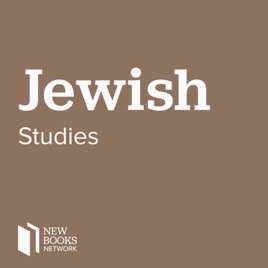
Advertise on podcast: New Books in Jewish Studies
Rating
4.3 from
Country
This podcast has
999 episodes
Language
Publisher
Explicit
No
Date created
2011/03/10
Average duration
69 min.
Release period
2 days
Description
Interview with Scholars of Judaism about their New Books Support our show by becoming a premium member! https://newbooksnetwork.supportingcast.fm/jewish-studies
Podcast episodes
Check latest episodes from New Books in Jewish Studies podcast
Ivo Goldstein and Slavko Goldstein, "The Holocaust in Croatia" (U Pittsburgh Press, 2016)
2024/02/25
The Holocaust in Croatia (U Pittsburgh Press, 2016) recounts the history of the Croatian Jewish community during the Second World War, with a focus on the city of Zagreb. Ivo and Slavko Goldstein have grounded their study on extensive research in recently opened archives, additionally aided by the memories of survivors to supplement and enrich the interpretation of documents. The authors' accessible narrative, here available in English for the first time, has been praised for its objectivity (including rare humane acts by those who helped to save Jews) and is complemented by a large bibliography offering an outstanding referential source to archival materials. As such, The Holocaust in Croatia stands as the definitive account of the Jews in Croatia, up to and including the criminal acts perpetrated by the pro-Nazi Ustasha regime, adding significantly to our knowledge of the Holocaust.
Published in association with the United States Holocaust Memorial Museum.
Learn more about your ad choices. Visit megaphone.fm/adchoices
Support our show by becoming a premium member! https://newbooksnetwork.supportingcast.fm/jewish-studies
more
Marcia Bricker Halperin, "Kibbitz and Nosh: When We All Met at Dubrow's Cafeteria" (Cornell UP, 2023)
2024/02/25
In the middle decades of the twentieth century in New York City, Dubrow’s cafeterias in the Flatbush section of Brooklyn and the garment district of Manhattan were places to get out of your apartment, have coffee with friends, or enjoy a hearty but affordable meal. They were grounded in the world of Jewish immigrants and their children, and they thrived in years when Flatbush and the Garment District each had a distinctly Jewish character. The cafeterias were also places where working class and modestly middle class New Yorkers of European ancestry, with few great luxuries in their lives, could enjoy a taste of culinary abundance.
Under demographic changes, economic decay and high crime in the 1970s and 1980s, the world that produced Dubrow’s came apart. The Brooklyn branch of Dubrow’s closed in 1978, the Manhattan branch in 1985.
But before Dubrow’s cafeterias were shuttered, Marcia Bricker Halperin captured their mood and their patrons in black and white photographs. These pictures, along with essays by the playwright Donald Margulies and the historian Deborah Dash Moore, constitute Marcia’s book Kibitz and Nosh: When We All Met at Dubrow’s Cafeteria, published by Cornell University Press (2023) and winner of a National Jewish Book Council prize for Food Writing and Cookbooks.
Robert W. Snyder, Manhattan Borough Historian and professor emeritus at Rutgers University, is editing an anthology of New Yorkers’ memories of the COVID-19 pandemic for Cornell University Press.
Learn more about your ad choices. Visit megaphone.fm/adchoices
Support our show by becoming a premium member! https://newbooksnetwork.supportingcast.fm/jewish-studies
more
Bojan Aleksov, "Jewish Refugees in the Balkans, 1933-1945" (Brill, 2023)
2024/02/24
The Balkans provided the escape route for tens of thousands of German Jews, and remained a place of refuge until the Nazis brutally shut it off with the mass murder of Jewish refugees on the so-called Kladovo transport starting in September 1941, which can be considered as the beginning of the Holocaust in Europe.
Responding to publications about the Western European and American exile experience of the Jews after 1933, Bojan Aleksov's book Jewish Refugees in the Balkans, 1933-1945 (Brill, 2023) offers comparative insights into the less trodden paths of the persecuted, illuminating the cultural and political context of the Balkan host countries, the response of local Jewish communities, and the reactions of common people and assorted criminals. The Balkans, often marginalized and loathed, emerges in hundreds of personal accounts of survivors gathered here, supplemented by extensive archival research, as a welcoming getaway, where thousands survived thanks to the Italian occupiers, illiterate peasants, and Communist-led Partisan resisters.
Learn more about your ad choices. Visit megaphone.fm/adchoices
Support our show by becoming a premium member! https://newbooksnetwork.supportingcast.fm/jewish-studies
more
Till Van Rahden, "Multiplicity: Jewish History and the Ambivalences of Universalism" (Hamburger Editionen, 2022)
2024/02/24
Since the Enlightenment, the question has arisen as to how it is possible to think of the “unity of the human race” as a multiplicity. How can the promise of universal equality be combined with the claim to diversity? In Vielheit: Jüdische Geschichte und die Ambivalenzen des Universalismus (Hamburger Editionen, 2022), Till van Rahden takes up this central theme of European modernity through the example of Jewish history.
The more the ideal of equality gained in importance, the fiercer the dispute over cultural and religious difference became. This is illustrated by the debates about the emancipation of the Jews and the Jewish experiences of equal rights and discrimination since the late 18th century. Through the history of contentious concepts such as assimilation, minority or majority, ethnicity, and roots, this book tells a story of plurality that extends to the present day. It describes a reality full of contradictions, in which it is necessary to endure the tension between equality and freedom.
Paul Lerner is Professor of History at the University of Southern California where he directs the Max Kade Institute for Austrian-German-Swiss Studies. He can be reached at plerner@usc.edu and @PFLerner.
Learn more about your ad choices. Visit megaphone.fm/adchoices
Support our show by becoming a premium member! https://newbooksnetwork.supportingcast.fm/jewish-studies
more
Raanan Rein, "Populism and Ethnicity: Peronism and the Jews of Argentina" (McGill-Queen's UP, 2020)
2024/02/23
Juan Perón's decade-long regime, from 1946 to 1955, is often presented as Nazi-fascist and antisemitic - claims that are strongly rooted in Argentina's collective unconscious and popular culture. Challenging this widely held view, Raanan Rein asserts that there was greater Jewish support for Perón than previously believed, and that fewer antisemitic incidents took place in Argentina during Perón's rule than during any other period in the twentieth century.
Recovering the silenced voices of Jewish Argentines who supported Peronism from the beginning, Populism and Ethnicity: Peronism and the Jews of Argentina (McGill-Queen's UP, 2020) is a historical, sociological, and political analysis that describes the many positive changes experienced by the Jewish community as a direct result of Perón's presidencies. Perón and his wife Eva gave numerous speeches denouncing antisemitism, and Perón's Argentina was the first Latin American country to open an embassy in the newly established State of Israel.
Arguing that no president before Perón so unambiguously rejected discrimination against Jews, Rein shows that many Jews secured more important posts in government in the 1940s and 1950s than in previous years, among them members of the Argentine Jewish Organization, which became a section of the ruling Peronist party. Deconstructing the myth of antisemitism during Perón's regime, Populism and Ethnicity looks deep into the heart of international memory for the truth behind Jewish-Argentine relations.
Learn more about your ad choices. Visit megaphone.fm/adchoices
Support our show by becoming a premium member! https://newbooksnetwork.supportingcast.fm/jewish-studies
more
Safwat Marzouk, "Egypt as a Monster in the Book of Ezekiel" (Mohr Siebeck, 2015)
2024/02/21
Appealing to Monster Theory and the ancient Near Eastern motif of "Chaoskampf," Safwat Marzouk argues that the paradoxical character of the category of the monster is what prompts the portrayal of Egypt as a monster in the book of Ezekiel. While on the surface the monster seems to embody utter difference, underlying its otherness there is a disturbing sameness. Though the monster may be defeated and its body dismembered, it is never completely annihilated.
As Marzouk explains in Egypt as a Monster in the Book of Ezekiel (Mohr Siebeck, 2015), Egypt is portrayed as a monster in the book of Ezekiel because Egypt represents the threat of religious assimilation. Although initially the monstrosity of Egypt is constructed because of the shared elements of identity between Egypt and Israel, the prophet flips this imagery of monster in order to embody Egypt as a monstrous Other. In a combat myth, YHWH defeats the monster and dismembers its body. Despite its near annihilation, Egypt, in Ezekiel's rhetoric, is not entirely obliterated. Rather, it is kept at bay, hovering at the periphery, questioning Israel's identity.
Learn more about your ad choices. Visit megaphone.fm/adchoices
Support our show by becoming a premium member! https://newbooksnetwork.supportingcast.fm/jewish-studies
more
Mara Josi, "Rome, 16 October 1943: History, Memory, Literature" (Legenda, 2023)
2024/02/20
Today I talked to Mara Josi about her new book Rome, 16 October 1943: History, Memory, Literature (Legenda, 2023).
Rome. Saturday 16 October 1943. This is where and when the largest single round-up and deportation of Jews from Italy happened. 1259 people were arrested by the German occupiers and gathered in a temporary detention centre for two days. They were eventually deported to Auschwitz-Birkenau from a local railway station, Stazione Tiburtina.
From December 1944, literary texts of this event have facili-tated a national and international understanding and recollection of 16 October 1943. They have been bearers of historical awareness, channels of memory; not only outcomes of remembrance but also active ingredients in the process of forging cultural memory.
In this pioneering interdisciplinary study drawing from literary and cultural memory studies, Mara Josi shows how 16 ottobre 1943 by Giacomo Debenedetti, La Storia by Elsa Morante, La parola ebreo by Rosetta Loy, and Portico d'Ottavia 13 by Anna Foa have operated on the personal and the collective level: in other words, on the reader and on society.
Mara Josi obtained her PhD at the University of Cambridge. Before joining the University of Ghent as an FWO Post-doctoral Fellow, she was an IRC Postdoctoral Fellow at University College Dublin and a lecturer at the University of Manchester.
Learn more about your ad choices. Visit megaphone.fm/adchoices
Support our show by becoming a premium member! https://newbooksnetwork.supportingcast.fm/jewish-studies
more
Daphna Sharfman, "Jerusalem in the Second World War" (Routledge, 2024)
2024/02/18
Daphna Sharfman's book Jerusalem in the Second World War (Routledge, 2024) is the first to present the unique story of the city of Jerusalem during the events of the Second World War and how it played a unique role in both the military and civilian aspects of the war.
Whilst Jerusalem is usually known for topics such as religion, archaeology, or the politics of the Israeli-Arab conflict, this volume provides an in-depth analysis of this exceptional and temporary situation in Jerusalem, offering a perspective that is different from the usual political-strategic-military analysis. Although battles were raging in the nearby countries of Syria and Lebanon, and the war in Egypt and the Western Desert, the people who came to Jerusalem, as well as those who lived there, had different agendas and perspectives. Some were spies and intelligence officers, other were exiles or refugee immigrants from Europe who managed at the last moment to escape Nazi persecution. Journalists and writers described life in the city at this time. All were probably conscious of the fact that when the war came to an end, local rivalry and mounting conflict would take the centre stage again. This was a time of a special, magical drawn-out moment that may shed light on an alternative, more peaceful, kind of Jerusalem that unfortunately was not to be.
This volume seeks to find an alternative approach and to contribute to the development of insightful research into life in an unordinary city in an unordinary situation. It will be of value to those interested in military history and the history of the Middle East.
Learn more about your ad choices. Visit megaphone.fm/adchoices
Support our show by becoming a premium member! https://newbooksnetwork.supportingcast.fm/jewish-studies
more
Jewish War Ethics, Ancient to Contemporary: A Conversation with Rabbi Shlomo Brody
2024/02/14
How should we think about violent accounts in the Bible? Why did Gandhi urge the Jews to turn a blind eye to anti-Semitism during World War II? What is the reality behind buzz-words like asymmetric warfare and collective punishment that come up so often when discussing events in Gaza? What role should global opinion and the hostage crisis play in Israeli strategy? Is there a moral imperative to win?
Jewish ethicist Rabbi Dr. Shlomo Brody discusses these questions and more in this discussion of his recent book Ethics of Our Fighters: A Jewish View on War and Morality. This conversation examines how history and ethics bear on modern dilemmas in Gaza, and presents vital information and historical context for thinking about how to respond to the events of October 7.
Shlomo Brody is the Executive Director of Ematai, an organization which provides guidance to Jewish families and rabbis surrounding morally difficult health issues such as end-of-life care and organ donation. He is also the Jewish Law Live columnist for the Jerusalem Post. He has previously served as the founding director of the Tikvah Overseas Student Institute and co-dean of Tikvah Online Academy, a senior instructor at Yeshivat Hakotel, and as a junior research fellow at the Israel Democracy Institute. His writings have been cited in Israeli Supreme Court decisions and appeared in a wide variety of publications including First Things, Tablet, The Forward, and the Jewish Review of Books. A summa cum laude graduate of Harvard College, he received rabbinic ordination from the Israeli Chief Rabbinate, an MA in Jewish philosophy at the Hebrew University, and his PhD from Bar Ilan University Law School.
Learn more about your ad choices. Visit megaphone.fm/adchoices
Support our show by becoming a premium member! https://newbooksnetwork.supportingcast.fm/jewish-studies
more
Paul Mendes-Flohr, "Martin Buber: A Life of Faith and Dissent" (Yale UP, 2019)
2024/02/12
In Martin Buber: A Life of Faith and Dissent (Yale University Press, 2019), Paul Mendes-Flohr, professor emeritus at the University of Chicago Divinity School and the Hebrew University of Jerusalem, paints a detailed and compelling portrait of one of the twentieth century's most versatile and influential thinkers. Tracing Buber's personal and intellectual biographical arcs, Mendes-Flohr helps us understand Buber as an accomplished scholar, a reverent student of Judaism, and a proponent of genuine engagement on the personal, cultural, and political levels -- but also as a person at times deeply affected by loss, dislocation, and marginalization.
David Gottlieb earned his PhD, studying under Professor Mendes-Flohr in the History of Judaism at the University of Chicago Divinity School, in 2018. He teaches at Spertus Institute in Chicago, and is the author of the forthcoming Second Slayings: The Binding of Isaac and the Formation of Jewish Memory (Gorgias Press).
Learn more about your ad choices. Visit megaphone.fm/adchoices
Support our show by becoming a premium member! https://newbooksnetwork.supportingcast.fm/jewish-studies
more
George Eisen, "A Summer of Mass Murder: 1941 Rehearsal for the Hungarian Holocaust" (Purdue UP, 2022)
2024/02/10
Most accounts of the Holocaust focus on trainloads of prisoners speeding toward Auschwitz, with its chimneys belching smoke and flames, in the summer of 1944. This book provides a hitherto untold chapter of the Holocaust by exploring a prequel to the gas chambers: the face-to-face mass murder of Jews in Galicia by bullets.
The summer of 1941 ushered in a chain of events that had no precedent in the rapidly unfolding history of World War II and the Holocaust. In six weeks, more than twenty thousand Hungarian Jews were forcefully deported to Galicia and summarily executed. In exploring the fate of these Hungarian Jews and their local coreligionists, A Summer of Mass Murder: 1941 Rehearsal for the Hungarian Holocaust (Purdue UP, 2022) transcends conventional history by introducing a multitude of layers of politics, culture, and, above all, psychology--for both the victims and the executioners.
The narrative presents an uncharted territory in Holocaust scholarship with extensive archival research, interviews, and corresponding literature across countries and languages, incorporating many previously unexplored documents and testimonies. Eisen reflects upon the voices of the victims, the images of the perpetrators, whose motivation for murder remains inexplicable. In addition, the author incorporates the long-forgotten testimonies of bystander contemporaries, who unwittingly became part of the unfolding nightmare and recorded the horror in simple words.
This book also serves as a personal journey of discovery. Among the twenty thousand people killed was the tale of two brothers, the author's uncles. In retracing their final fate and how they were swept up in the looming genocide, A Summer of Mass Murder also gives voice to their story.
Learn more about your ad choices. Visit megaphone.fm/adchoices
Support our show by becoming a premium member! https://newbooksnetwork.supportingcast.fm/jewish-studies
more
More on "Cleanliness" (nekiyut)
2024/02/08
On this week's episode, Modya and David discuss the Torah portion of Mishpatim (Ex. 21:1-24:18) through the lens of the character trait of nekiyut, or cleanliness. In this Torah portion, the divine articulation of detailed laws helps to establish a culture in which physical, spiritual, and moral cleanliness are upheld on an individual and collective basis. What does this mean for how we, today, confront temptation, cultivate care for our physical selves, and support collective efforts toward elevating these aspects of our lives? Thanks for listening!
Learn more about your ad choices. Visit megaphone.fm/adchoices
Support our show by becoming a premium member! https://newbooksnetwork.supportingcast.fm/jewish-studies
more
Podcast reviews
Read New Books in Jewish Studies podcast reviews
Tmpadawan
2017/10/27
Excellent
Great venue for current Jewish thought
Gila Naiditch
2024/01/23
Paul, stop interrupting!!
Last episode was so almost unbearable with the number of times Paul interrupted Susie. I request a do-over with Susie, I wanted to hear what she had t...
more
spinfrog
2023/06/04
Unfollowing due to ep. 86
The show interviews an author and an 'activist' agitating against the very existance of the only Jewish state.. this individual makes endless unsubsta...
more
Ellicd
2021/02/06
Great podcast
Great podcast. One criticism: the sound editor overlaps the end of a question with the beginning of an answer
maltvinegarfish and chips
2019/09/08
Great interviews
This is a very varied and fascinating
group of scholars. Interviews are an in depth discussion of their current work. Introduces compelling ...
more
EFdove61
2018/03/02
Thoughtful interviews
Thoughtful interviews and enjoyable to listen to
Finni91
2018/02/20
Great Podcast
Interesting and diverse. The previous reviews are definitely from the podcast's earlier days, and the production value now is quite high. Keep it up!
Daniel Berlin Brigade
2016/09/22
Love listening to these.
I enjoy these very much. They could be longer for me. I also recommend improving the quality of the sound!
Jbg9000
2017/03/06
Enjoying for a few weeks
Adding many books to my to read list and I have shared many episodes with friends. Keep it up
Podcast sponsorship advertising
Start advertising on New Books in Jewish Studies & sponsor relevant audience podcasts
You may also like these judaism Podcasts
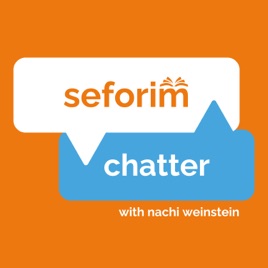
5
258
263
Seforimchatter
Nachi Weinstein
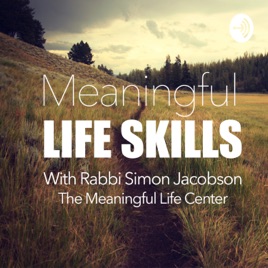
4.9
87
282
Meaningful Life Skills with Rabbi Simon Jacobson
Rabbi Simon Jacobson

4.9
14
145
Ancient Roads: Real Israel Talk Radio
Avi ben Mordechai
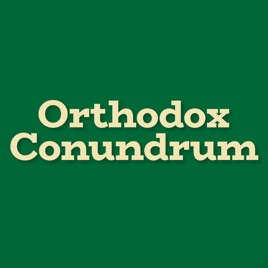
4.7
156
213
Orthodox Conundrum
Scott Kahn
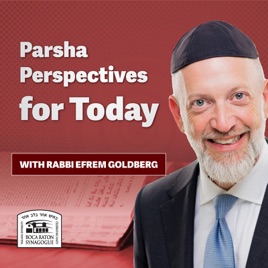
4.9
45
706
Parsha Perspectives
Rabbi Efrem Goldberg

4.9
155
78
Deep Meaningful Conversations
Alex Fleksher and Rivki Silver
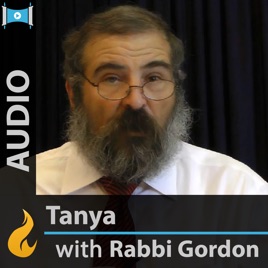
4.7
156
28
Tanya With Rabbi Gordon
Chabad.org: Yehoshua B. Gordon
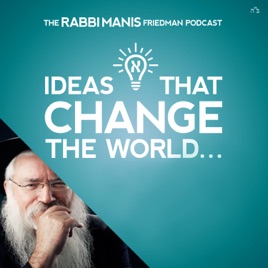
4.8
130
314
The Rabbi Manis Friedman Podcast
Rabbi Manis Friedman

4.9
536
156
Behind the Bima
Rabbi Efrem Goldberg
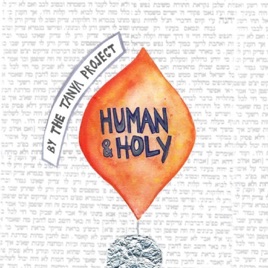
5
231
119
Human & Holy
Tonia Chazanow



